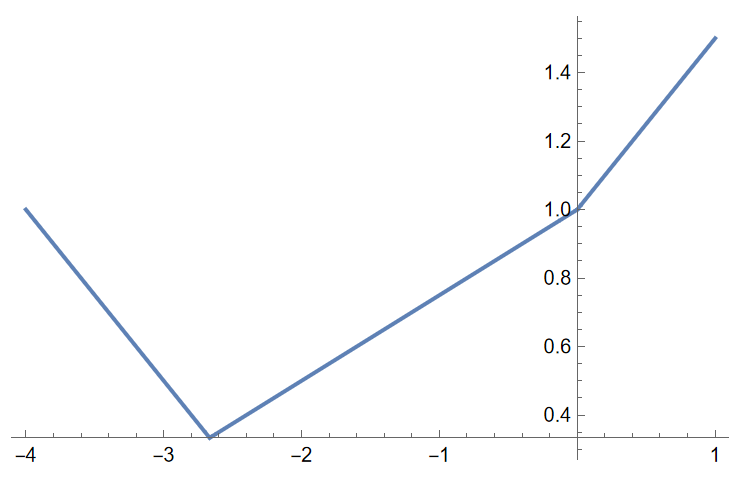For an arbitrary set $\Gamma$, Day's norm on $c_0(\Gamma)$ is defined by $$ \Vert x \Vert = \sup \bigg \{ \bigg ( \sum_{k=1}^n 4^{-k} x^2(\gamma_k) \bigg )^{\frac{1}{2}} : (\gamma_1, \cdots, \gamma_n) \in \Gamma \bigg \}, $$ where supremum being taken over $n \in \mathbb{N}$ and all ordered n-tuples $(\gamma_1, \cdots, \gamma_n)$ of distict elements of $\Gamma$. Then $(c_0(\Gamma), \Vert \cdot \Vert)$ defines an LUR ($x, x_n \in S_X$ with $\Vert x+x_n \Vert \to 2$ implies $x_n \to x$) and Frechet differentiable norm. We take an equivalent norm to that of $\Vert \cdot \Vert$ as follows: $$ \Vert x \Vert_0 = \max \{\Vert x' \Vert, \Vert x'' \vert \}, $$ where $x'= (0, x_2, x_3,\cdots)$ and $x''=(x_1, 0, x_3, \cdots)$. This norm is not rotund and, hence, is not LUR. However, I am trying to determine whether this new norm $\Vert \cdot \Vert_0$ is gateaux differentiable. Kindly help me. Thank you.
1 Answer
$\begingroup$
$\endgroup$
1
This norm is not Gateaux differentiable for $n\ge2$.
Indeed, let $x:=(2,4,0,\ldots,0)$ and $u:=(1,1,0,\ldots,0)$. Then $$g(t):=\|x+tu\|_0=\max(|1+\tfrac t4|,|1+\tfrac t2|) \\ =-(1+\tfrac t2)\,1(t\le-\tfrac83)+(1+\tfrac t4)\,1(\tfrac83<t\le0) +(1+\tfrac t2)1(t>0)$$ for real $t$. So, $g$ is not differentiable at $0$ (and also at $-8/3$). $\quad\Box$
Here is the graph $\{(t,g(t))\colon-4<t<1\}$:
-
$\begingroup$ @PPB : Thank you for your comments. I think it would be better to ask these additional questions in separate posts. Among other reasons, this way they will probably get a greater exposure. $\endgroup$ Commented Nov 16, 2023 at 14:33

